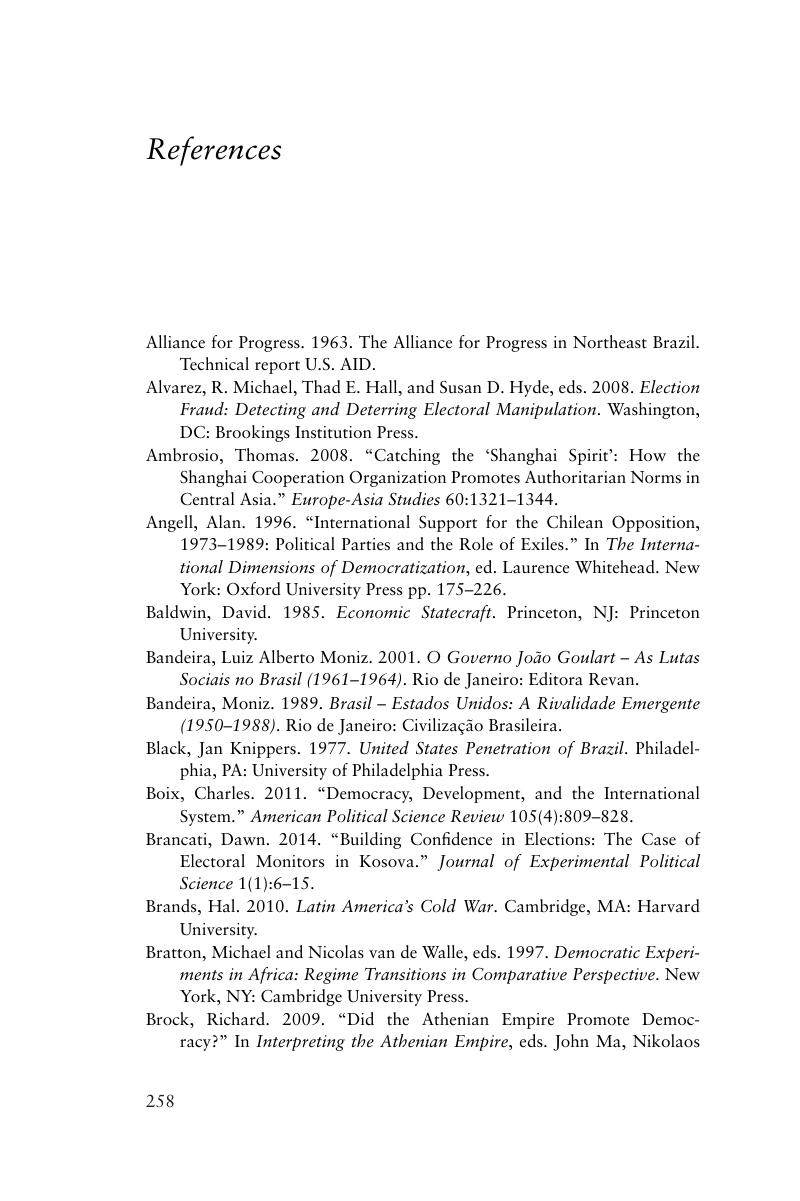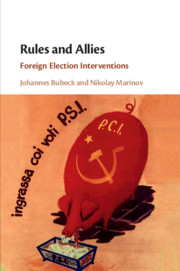Book contents
- Frontmatter
- Contents
- List of Figures
- List of Tables
- Acknowledgements
- 1 Introduction
- 2 Anarchy and Polyarchy
- 3 The Who and the How of Elections: A Theory with Interested Outsiders
- 4 Actors, Policies, Strategies: Original Data on Electoral Interventions
- 5 How Election Interventions Work: A Look at the Evidence
- 6 Captain America
- 7 When Money Runs Low and Regime Overthrow
- 8 Buying Allies
- 9 Conclusion
- Appendix
- References
- Subject Index
- Author Index
- References
References
Published online by Cambridge University Press: 15 July 2019
- Frontmatter
- Contents
- List of Figures
- List of Tables
- Acknowledgements
- 1 Introduction
- 2 Anarchy and Polyarchy
- 3 The Who and the How of Elections: A Theory with Interested Outsiders
- 4 Actors, Policies, Strategies: Original Data on Electoral Interventions
- 5 How Election Interventions Work: A Look at the Evidence
- 6 Captain America
- 7 When Money Runs Low and Regime Overthrow
- 8 Buying Allies
- 9 Conclusion
- Appendix
- References
- Subject Index
- Author Index
- References
Summary

- Type
- Chapter
- Information
- Rules and AlliesForeign Election Interventions, pp. 258 - 268Publisher: Cambridge University PressPrint publication year: 2019

